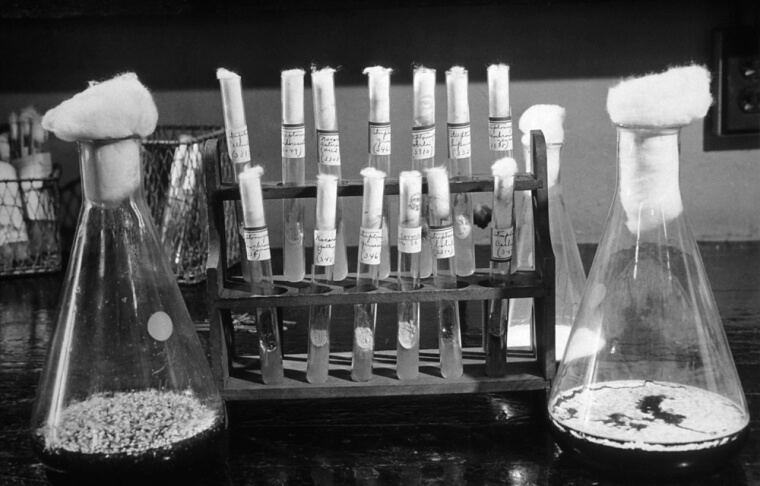1. Penicillin
Prior to 1928, infections that we would now consider innocuous could have wiped out entire communities. Alexander Fleming's discovery of penicillin, the world's first antibiotic, changed all of this forever, after successfully growing it in his lab using mold and fungi. Antibiotics have since been developed to fight a whole range of infections and can a prescribed course can mean the difference between life and death.
2. X-Rays
Discovered in 1895 by the German physicist, Wilhelm Roentgen, x-rays are one of the medical profession's most innovative milestones, for which Roentgen was awarded the inaugural Nobel Prize in physics. X-rays work by going straight through substances such as flesh or wood but, crucially, are stopped by substances like bone and metal. This allows for an image to be studied by doctors to analyze broken bones but also by security to see through suspicious suitcases and packages etc.
3. The Atomic Bomb
A highly impressive, but highly controversial, feat of scientific discovery - the atomic bomb successfully brought an end to World War II (at great human cost), yet also ushered in a nuclear arms race that continues to this day. It began in the early 1940s when a group of the world's leading scientists gathered to figure out how uranium could be refined to create an atomic bomb. This ensemble, known as the Manhattan Project, took just 5 years to develop a weapon that was dropped over two locations - the Japanese cities of Hiroshima and Nagasaki - instantly killing tens of thousands of civilians and causing long-lasting devastation to the affected areas. Thankfully, these two instances in 1945 remain the only occasions that atomic bombs have ever been used in battle, although countries around the world continue to stockpile nuclear weapons for political posturing.
4. Theory Of Evolution
In 1859 the British naturalist, Charles Darwin, came up with the theory of evolution and forever changed the idea of how life on Earth developed. Darwin argued that all organisms evolve at a slow rate over time, allowing a species to adapt to, and survive in, its changing environment. If a species can't adapt then they risk becoming extinct, a process Darwin called natural selection and often referred to as 'survival of the fittest.' Darwin's theory has often been at odds with those who hold strong religious beliefs, especially the idea of creationism.
5. Gravity
Considered by many to be the greatest scientist of all time, the English mathematician and physicist Isaac Newton is best known for his universal law of gravitation - or discovering gravity. It was in 1664 that Newton realized that gravity is the force that draws objects towards each other and explained why the planets orbit around the sun.





